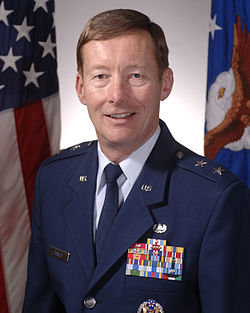And even there, Turley says
“The provision merely states that nothing in the provisions could be construed to alter Americans’ legal rights.
Since the Senate clearly views citizens are not just subject to indefinite detention but even execution without a trial,
the change offers nothing but rhetoric to hide the harsh reality.”
Essentially recognizing that this bill reaffirms powers regarding detention, for the President and Congress, that they have already had. Neither Turley or Limbaugh can show that this bill gives the Execute or Legislative Branch detention powers, regarding US citizens, that AUMF 2001 and Patriot Act did not already give them. Rush is insisting that this bill gives the govt a sort of radical new power solely because it was signed-and not created and drafted-by Obama. It is not a good bill-but it is not a revolutionary or catastrophic bill either.
oes the NDAA expand the government’s detention authority?
Nope. Under current law, the Obama administration claims the authority to detain:
persons that the President determines planned, authorized, committed, or aided the terrorist attacks that occurred on September 11, 2001, and persons who harbored those responsible for those attacks. The President also has the authority to detain persons who were part of, or substantially supported, Taliban or al-Qaida forces or associated forces that are engaged in hostilities against the United States or its coalition partners, including any person who has committed a belligerent act, or has directly supported hostilities, in aid of such enemy armed forces.
That claim of authority is based on the Authorization for Use of Military Force (“AUMF”) passed by Congress shortly after the September 11 attacks, as informed by the law of war. The Bush Administration previously claimed very similar authority, albeit invoking not just the AUMF but also the inherent power of the President under Article II of the Constitution. In any event, such claims have been subjected to judicial challenge repeatedly, most commonly in the context of the Guantanamo detainee habeas litigation. As we explain below, the courts have had a decidedly mixed reaction in the pair of cases involving persons captured within the United States, but as for persons captured abroad, they have largely endorsed the government’s position. The D.C. Circuit, in fact, has tentatively adopted a definition of the class detainable under the AUMF that is, if anything, broader than what the administration seeks. While the administration–and now Congress–would detain only on the basis of “substantial support,” the D.C. Circuit has articulated a standard which would permit detention of those who “purposefully and materially support” the enemy, even if not substantially.
In light of all this, a law that writes the administration’s successful litigating position into statute cannot reasonably be said to expand the government’s detention authority. In fact, to the extent that the new statutory language will preempt the arguably broader D.C. Circuit definition, it may actually narrow it–if only very slightly. So let’s compare the language of the administration’s claimed authority (quoted above) to the language of the NDAA:
(1) A person who planned, authorized, committed, or aided the terrorist attacks that occurred on September 11, 2001, or harbored those responsible for those attacks.
(2) A person who was a part of or substantially supported al-Qaeda, the Taliban, or associated forces that are engaged in hostilities against the United States or its coalition partners, including any person who has committed a belligerent act or has directly supported such hostilities in aid of such enemy forces.
They are almost verbatim the same. The NDAA is really a codification in statute of the existing authority the administration claims. It puts Congress’s stamp of approval behind that claim for the first time, and that’s no small thing. But it does not–notwithstanding the widespread belief to the contrary–expand it. Nobody who is not subject to detention today will become so when the NDAA goes into effect.
The one area in which the NDAA could theoretically be said to expand detention authority involves people held on the basis not of membership in an enemy group but mere support for one. As noted above, the government has long claimed this authority already, and the DC Circuit has in fact endorsed a slightly broader formulation. But so far, anyway, it has done so in dicta only–that is, not in any case where the fact pattern actually depended on the resolution of that issue. In theory, then, the circuit (or the Supreme Court) might at some point have concluded that support alone is insufficient to support a detention. The NDAA will ensure that this does not happen by making clear that independent support does count as a ground for detention (or at least it will do so as a matter of statutory interpretation; in theory, the door would remain open to some form of constitutional challenge, though it is difficult to see how that would work). So even as it marginally narrows the detainable class, the NDAA also tends to ensure that courts will not narrow the scope of that class further.
 I recommend you read Major General Charles J. Dunlap Jr.
I recommend you read Major General Charles J. Dunlap Jr.